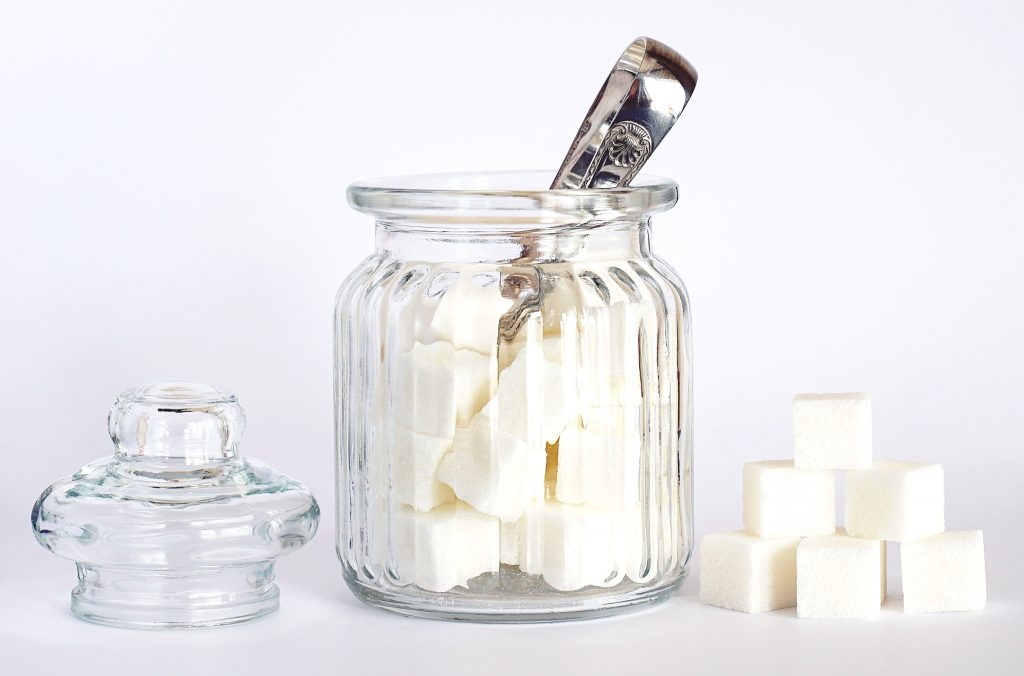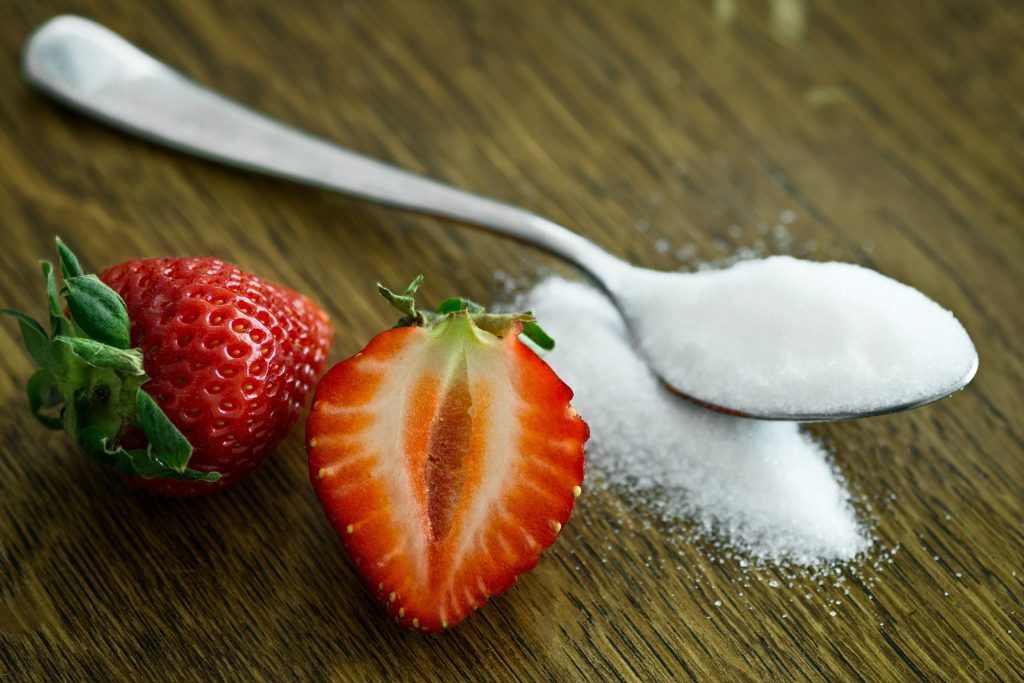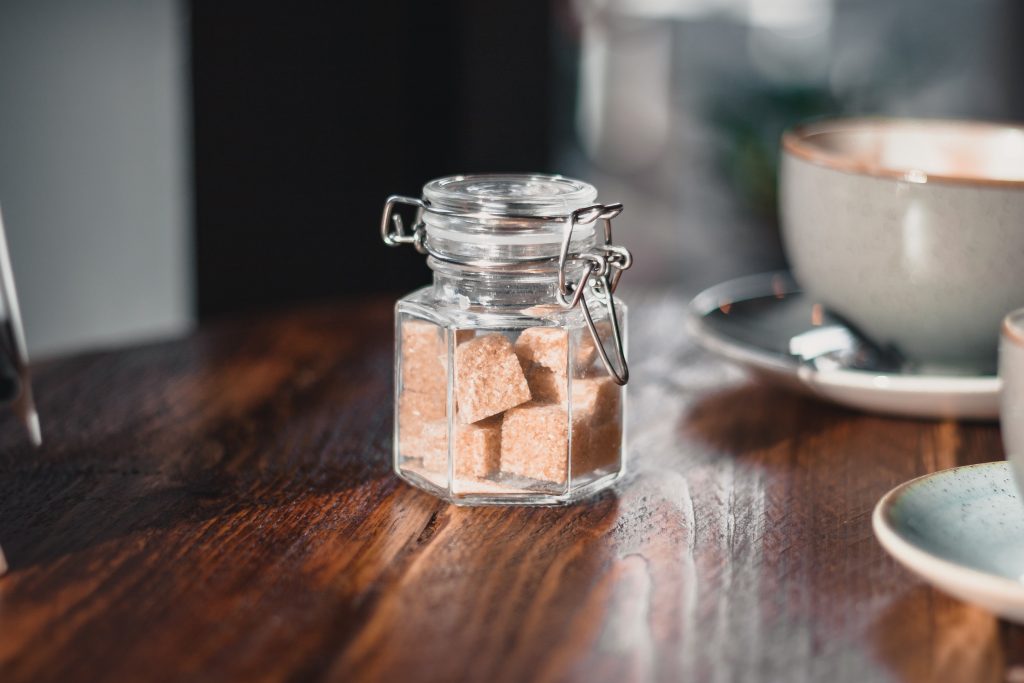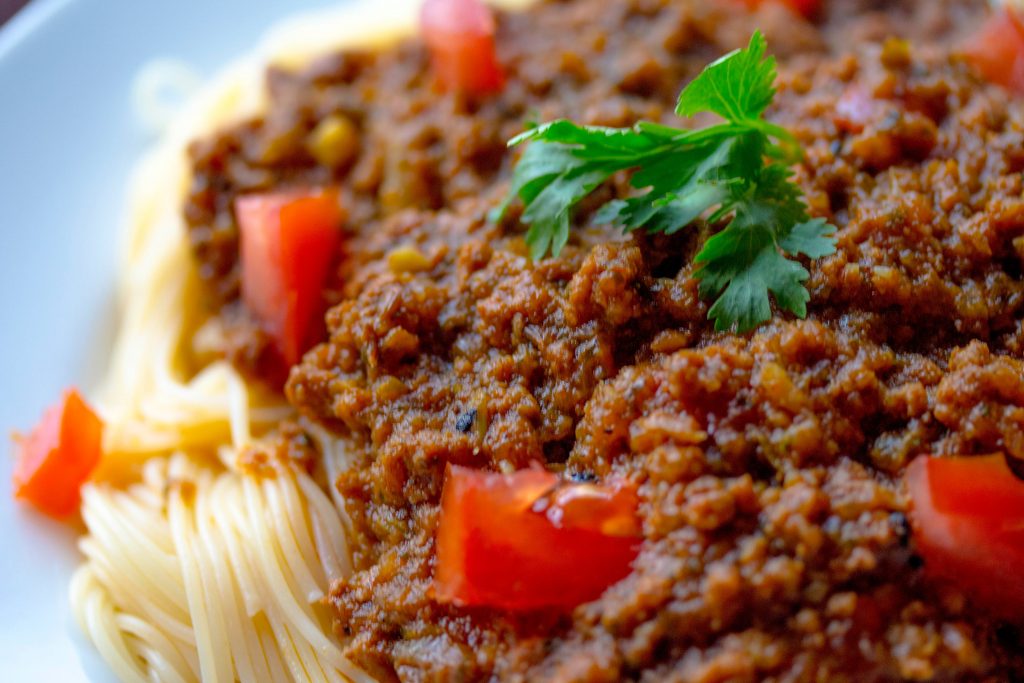
Sugar is a huge component of the processed American diet and can be found in many foods we consume on a regular basis, even when trying to eat a healthy, well balanced diet. Yet many Americans don’t know how much they should be eating for weight loss and whether or not sugar consumption is bad for you. If you are trying to lose weight, watching your sugar intake can be very important and certainly can affect your overall success in your weight loss goals. Although some sugar is ok to consume in moderation, excess sugar intake can be linked to weight gain, heart disease, fatty liver disease, diabetes, cause acne, increase your risk of cancer and more (Healthline). In general, when you are trying to lose weight and reach your goals, it is a good idea to be watching sugar intake and try to eat as much low sugar foods as possible.

According to the American Heart Association, American adults consume an average of 77 grams of sugar per day, more than 3 times the recommended amount for women, and American kids consume 81 grams per day, equaling over 65 pounds of added sugar per year. All of this excess sugar is leading to many different health problems, as well as causing unnecessary weight gain in many American adults. In order to succeed in your diet and weight loss plan, you need to know how much sugar is too much. Once you are informed you can plan accordingly and work to decrease your sugar intake. The American Heart Association reports that men should consume no more than 9 teaspoons of sugar, which equals 36 grams or 150 calories. Women should consume no more than 6 teaspoons of sugar, which equals 25 grams or 100 calories in their daily diets. With the average adult consuming approximately 77 grams of sugar per day, a major overhaul needs to take place to get even close to those recommended numbers.

Fruits are technically healthier sources of sugar because they come from natural sources. According to Medical New Today, “fruit tends to contain less sugar than sweetened foods. Almost everyone, including people with diabetes, could benefit from eating more fruit. This is due to the combination of vitamins, minerals, phytochemicals, and water it provides. Fruit contains two types of sugar: fructose and glucose. The proportions of each vary, but most fruits are about half glucose and half fructose. Glucose raises blood sugar, so the body must use insulin to metabolize it. Fructose does not raise blood sugar. Instead, the liver breaks it down”. If you are trying to decide what to eat, always opt for whole fruits versus a processed counterpart. The health benefits and nutrient components in fruit provide necessary nutrients to your diet and weight loss plan. It is important to note that fruits still contain some sugars and calories so they need to be tracked and incorporated into your diet accordingly—you can get too much of a good thing.

Artificial sweeteners are used in many foods that are marketed as diet foods, because they cut down on the sugar content in the food and can be helpful when trying to eat a lower calorie diet. There are pros and cons to consumption of artificial sweeteners, as with any foods. Artificial sweeteners for the most part do not contribute to tooth decay and generally don’t affect blood sugar levels. But there are some critics who claim artificial sweeteners could increase chances of cancer, and there are studies that show individuals can ingest more than recommended because they might not feel as satiated with sugar substitutes than real sugar (Mayo Clinic). Whether you choose to use artificial sweeteners as part of your diet plan or not, make sure you educate yourself on the type of sweetener and any potential side effects.

Most people are aware that desserts, sweet treats and sodas are pretty obvious sources of sugar. But for those on a weight loss plan, it can be shocking to find out that even when they cut out added sugars, they are still consuming way more than the recommended daily intake. This is because even many savory foods have loads of sugar. The sources may surprise you, but here are some examples of foods with the highest “surprise” amounts of sugar:
Barbeque Sauce-12 grams
Marinara/Spaghetti Sauce-10 grams
Non Dairy milks (like almond milk)-15 grams
Baked Beans-10 grams
Peanut Butter-6 grams
Salad Dressing-15 grams
(The above examples are approximations, as brands can vary. Always check your labels before buying). As you see above, the sugars can add up quickly, even in these “savory” foods, which can really hinder success in your diet plan. Many companies are beginning to come out with lower sugar options, so take some extra time to read through labels before you make a decision on which item to purchase.

If you are like many Americans, you could benefit from decreasing your daily sugar intake. Some simple swaps can help you lower your overall daily sugar count:
1. Drink unsweetened soda water instead of drinking sodas, juices and energy drinks.
2. Choose plain unsweetened yogurt and add berries instead of the added sugar options.
3. Drink your coffee black or with no sugar added creamers or milks.
4. Make your own salad dressing with olive oil and vinegar instead of store bought options with added sugars.
5. Buy no sugar added oats and sweeten with fruit instead of sugary store bought options.
As a rule of thumb, it is always best to cook with whole foods in the home instead of with a higher sugar/fat processed option. Using lean meats, fresh fruits and vegetables and whole grains will help you reach your health and weight loss goals faster, as well as keep the weight off for good. If you struggle with sugar cravings and need some tips, check out our blog post on how to kick a sugar habit for good. We also recommend tracking your daily food intake because you will always make better choices with more awareness of your foods. There are many apps available that can make food journaling easier and help you make wise choices. As always, we recommend you step on your SureFiz scale daily to track your weight loss progress and to keep you on the right track to reaching your weight loss goals. We are here to help you along every step of your weight loss journey. Follow our social media accounts for more diet tips, workout advice and healthy recipe ideas.